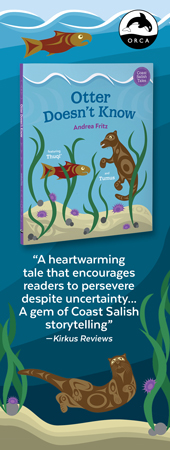Wrestling with Demons, Fiction vs. Non-Fiction
April 02nd, 2008
ON OCCASION, I teach short story and novella writing at the Nelson University Center, usually to complete novices who labor under the assumption that fiction has something to do with life writing – a genre that is slightly more ambitious than diary writing, from what I can discern.
Sometimes my classes resemble five-step recovery programs more than they do writing classes. When my students select material to write about, they go no further than their own lives. They unpack their domestic, relationship, employment and addiction problems and expect them to be of interest to readers. Quite often, the main characters are thinly disguised stand-ins for themselves.
Usually, I reply that the material is worth dealing with, but it begs being developed. How can the author get the most out of the situation that his characters find themselves in? How can he maximize the stress on his characters and so force them to act on the page – to create a sense of drama? How can a greater sense of moment be brought to the story, in order to involve me, the reader?
Often, after tossing off a few suggestions, I will get a look of incredulity or even shock, followed by an utterance that might go something like this: “Yes, but it didn’t happen that way. It happened the way I described it in my story.”
“Fiction is the art of letting characters do what you wouldn’t ordinarily do – what you might not countenance doing yourself,” I reply. “What you’ve got to do is raise the ante – put more at stake.”
Many of my students have picked up the adage, “Write about what you know,” and have made the mistake of assuming that that means they should slavishly write about themselves, in situations they are familiar with, without employing the least bit of imagination. Novice writers often cling quite stubbornly to events in their own lives, without realizing that they are boring the hell out of their readers. They are so attached to a particular trauma, dramatic episode or dysfunctional relationship they have experienced, they are unable to have fun with it on the page.
On one occasion, after a student unpacked the details of her rather harrowing childhood, around which she hoped to concoct a novella, I said something to this effect: “Great. Wonderful material. You should consider yourself lucky to have had such a traumatic upbringing. You’ve got a trunk full of treasures you can now draw upon for stories. All you have to do is find a way to sustain our interest. What do you conceive of as the thread of continuity in your story? What do you foresee as the climax?”
Because such writers see themselves as the hero or heroine of their dramas (or, in current pop-psychology parlance, a survivor of trauma) they find it difficult to come up with a climax or end point to their stories, mainly because they haven’t stumbled upon that end point in their own lives. For me – or anyone else, for that matter – to suggest how they might unfold events to best advantage and so supply their dramas with a satisfactory finale, well, that, to them, amounts to fabricating or lying about events – that is, fictionalizing them.
I’ve come to the conclusion that such individuals live in fear of what their imaginations might disgorge. They are wary of their imaginations leading them into uncomfortable territory and, as a result, they cling to the so-called facts out of fear that they might be judged to be giving false testimony. To paraphrase Farley Mowat, they allow the ‘facts’ to stand in the way of a good story.
‘Lying’ or ‘stretching the truth’ has always been frowned upon – if not condemned outright – by most major religions, and yet, those same religions often engage in the most flagrant fabrications, especially when it comes to shoring up the so-called truths inherent in their belief structures. To ensure that followers abide by the ‘truths’ encoded in a particular system of thought, the devout will go to great lengths to persuade others, including the use of threats, extortion, brainwashing, excommunication, torture and violence. Freedom of thought, let alone expression, is contraindicated. To employ the imagination for anything other than memorizing scripture or patriotic platitudes is seen as subversive.
Having practiced the art of storytelling for several decades now, I have acquired a pretty good feeling for when a ‘lie’ is being passed off as a ‘truth’. Indeed, most of the ‘facts’ we cling to are little more than versions of what we think of as facts – that is, they are mere projections. By ‘sticking to the facts’, novice writers manage to avoid a thorough exploration of the material lying dormant in their own psyches. They fear acquainting themselves with their demons and being forced to engage in a vigorous wrestling match with them, as Gerald does in Women in Love, for instance. The mere idea of participating in such a leviathan struggle exhausts them and so they try to avoid it at all costs.
As a practiced, professional writer of fiction, I have, for greater or lesser periods of time, allowed myself to ‘become’ a variety of characters, some of whom I have found to be genuinely disconcerting. By doing so, I have come to realize how changeable or, perhaps I should say, how fluid personality is. A large part of what we believe to be quite solid and unshakable in ourselves changes depending on the circumstances we find ourselves in, and that is exactly what novice writers fear most – the relative nature of their perceptions and personalities.
Do enough writing and you will eventually discover that your personality is built on quicksand. At any moment, what appears to be a solidly grounded personality might sink out of sight, into the generative muck of the underworld, where uncertainty and dissolution also reign.
Essay Date: 2003

